
The Gender Advisory Board serves as an advisory body to Commission on Science and Technology for Development on gender and science, technology and innovation.
Objectives:
- Explore the gender dimensions of STI, by contributing with inputs on gender-related matters in documents of the CSTD.
- Facilitate, as appropriate, sharing of country experiences, highlighting best practices, and suggesting policy recommendations that support the work of the CSTD on gender mainstreaming.
- Provide, up-to-date information on opportunities and challenges women and girls in STI are facing, and to explore and suggest ways and means of cooperation to best address them, within the mandate of CSTD.
Mandate
While the Gender Advisory Board has made important contributions to CSTD and to UNCTAD at large, more recent developments, including the advancement of frontier technologies, call for a renewed and revitalized body that can more effectively serve the global community and address timely and pressing global challenges to build a world where no one is left behind.
The twenty-fourth session of the CSTD adopted a decision which requests that "the Economic and Social Council consider extending the mandate of the Gender Advisory Board of the Commission on Science and Technology for Development for a further five years". (E/DEC/2021/254 of 22 July 2021).
Decision 2021/254 : Extension of the mandate of the Gender Advisory Board of the Commission on Science and Technology for Development
At its 13th plenary meeting, on 22 July 2021, the Economic and Social Council decided to extend the mandate of the Gender Advisory Board of the Commission on Science and Technology for Development for a further five years, beginning on 1 January 2021, in order to allow it to complete its programme of work within the extrabudgetary resources allocated for this purpose.
Membership
The membership of the GAB is diverse from governments and non-governmental institutions, geographically balanced, and from developed and developing countries. They serve for 3 years with possibility of extension.
Members of the GAB have the relevant academic qualifications and extensive experience in conducting national development policy making or analysis, including on issues related to gender perspectives in STI.
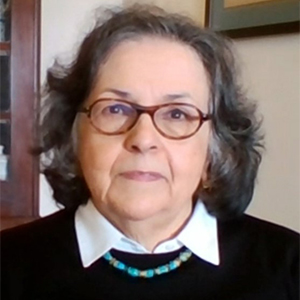
Alice Abreu
Professor Emerita, Federal University of Rio de Janeiro (UFRJ), Brazil
Professor Alice Abreu, served as Director of GenderInSITE, an international initiative to promote the role of women in science, innovation, technology, and engineering, and to demonstrate how applying a gender lens to SITE can provide deeper insights, more effective programmes and more sustainable outcomes in the context of development.
Professor Emerita of the Federal University of Rio de Janeiro, she is a sociologist by training and has worked on sociology of work and on gender and science.
She was vice-president of the National Research Council for Scientific and Technological Development of Brazil, Director of the Office of Education, Science and Technology of the Organization of American States, and Director of the Regional Office for Latin America and the Caribbean of the International Council for Science.
In 2022 she was elected International Honorary Member of the American Academy of Arts and Sciences.
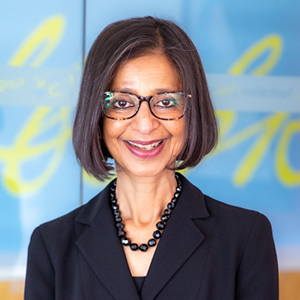
Ritu Agarwal
Professor of Johns Hopkins University, USA
Professor Ritu Agarwal is a Carey Distinguished Professor of Johns Hopkins University. She is also the founding co-director of the Center for Digital Health and Artificial Intelligence (CDHAI). Dr. Agarwal is an expert in the strategic use of information technology, digital transformation of healthcare, health analytics, and artificial intelligence applications in health. She was also the Founding Director of the Center for Health Information and Decision Systems (CHIDS) at the Smith School.
As a scholar working at the intersection of social science, data science and technology, Dr. Agarwal has been a pioneer in research related to digital technologies and health among scholars in leading business schools, and has devoted her research efforts towards improving healthcare quality, promoting equity and access, and reducing costs. She has published over 100 articles in leading business and healthcare journals such as Proceedings of the National Academy of Sciences, Information Systems Research, MIS Quarterly, Management Science, Journal of the American Medical Informatics Association, and Health Affairs.
In the past, Professor Agarwal launched the Annual Conference on Health Information Technology and Analytics (CHITA). A major focus of CHITA was on Responsible AI and the interaction of digital technologies and artificial intelligence with persistent disparities in outcomes for marginalized populations, including women. She has advocated extensively for the advancement of women in academia, including in her leadership role at the Smith School as an ADVANCE professor in the National Science Foundation program aimed at the gender equity for women in STEM and other disciplines.
Professor Agarwal has a PhD in Information Systems from the Whitman School of Management, Syracuse University, an M.S. in Computer Science from the L.C. Smith School of Engineering and Computer Science, Syracuse University, an MBA from the Indian Institute of Management, Calcutta, and a B.A. (Honors) in Mathematics from St. Stephen’s College, Delhi University.
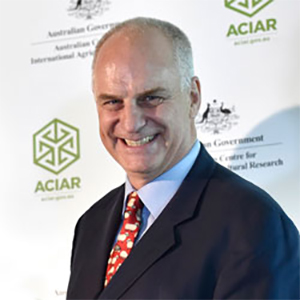
Andrew Campbell
Chief Executive Officer, Australian Centre for International Agricultural Research (ACIAR), Australia
Professor Andrew Campbell is the Chief Executive Officer of the Australian Centre for International Agricultural Research.
During his tenure, he has led the development of a 10-Year Strategy that focuses strongly on issues such as food security, gender equality, climate change, nutrition and health.
Mr. Campbell has overseen the implementation of capacity building partnerships such as the Meryl Williams Fellowship, fostering opportunities for female agricultural scientists in developing countries. ACIAR has an alumni network of more than 600 scientists, many in leadership roles in partner countries.
During Professor Campbell's leadership his commitment to gender equality has seen the proportion of women in senior roles at ACIAR increase from 11 per cent in 2016 to 70 per cent in 2021.
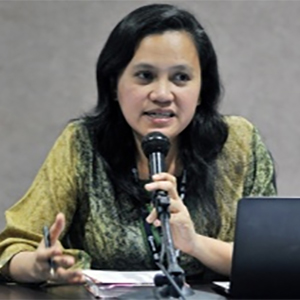
Elenita Daño
Asia Director, Action Group on Erosion, Technology and Concentration (ETC Group), The Philippines
Elenita “Neth” Daño is a Programme Manager of the Action Group on Erosion, Technology and Concentration (ETC Group) based in Davao City, southern Philippines since July 2009.
She is a researcher who has done in-depth analysis and published work on various issues in agriculture and climate change as well as technological divides, in developing countries, particularly in Southeast Asia.
She has contributed in the past to the work of the United Nations Open Working Group on SDGs and the UN Commission on Science and Technology for Development.
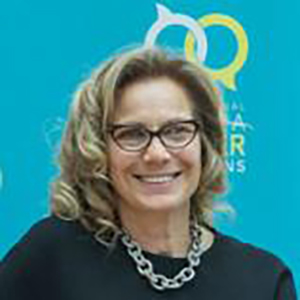
Caitlin Kraft-Buchman
CEO and Founder Women at the Table
Caitlin Kraft-Buchman is the CEO and Founder Women at the Table, a gender equality and systems change body based in Switzerland. She is also Co-Founder of <A+> Alliance for Inclusive Algorithms, a global coalition aimed at ensuring a world where machine learning does not wire already biased systems into our future. <A+> Alliance is a leader of the UN’s Generation Equality Action Coalition Technology and Innovation for Gender Equality, and co-chair of the 2023 Expert Group for the UN Commission on the Status of Women.
Ms Buchman leads the <AI and Equality> Human Rights Toolbox initiative, that gives workshops and supports community working for a human rights-based approach to AI. Ms Buchman also co-founded the “International Gender Champions” (IGC), that bring together female andi male heads of organizations, including the UN Secretary-General, to break down gender barriers, and serves on the IGC Global Board. She also serves as Civil Society lead for the World Benchmarking Alliance's Collective Impact Coalition for Digital Inclusion. She advises many institutions on AI and gender, including GIZ regarding their Digi-Cluster, AI4D for Africa, the AI4D Innovation Challenge for AI and Gender. She is global director and a leader of the <a+i>r feminist AI research Network, funded by IDRC, with Hubs in Latin America and the Caribbean, the Middle East and North Africa, and South East Asia.
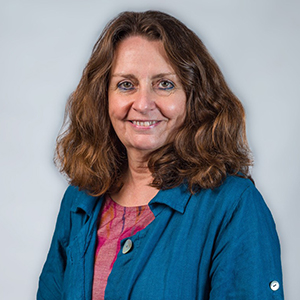
Sophia Huyer
Director, Women in Global Science and Technology (WISAT) Gender and Social Inclusion Research Leader for the CGIAR Research Program on Climate Change, Agriculture and Food Security (CCAFS), Canada
Sophia Huyer is Gender and Social Inclusion Leader for Accelerating the Impact of CGIAR Climate Research in Africa (AICCRA) as well as Director of Women in Global Science and Technology (WISAT).
She is also member of the Subcommittee on Systemic Solutions for Climate Change Adaptation and Mitigation in Agricultural, Nutrition, and Food Systems to the US Board for International Food and Agricultural Development (BIFAD); co-editor at the journal Gender, Technology and Development; and member of the Scientific Advisory Panel of the AWARD One Planet Fellowship.
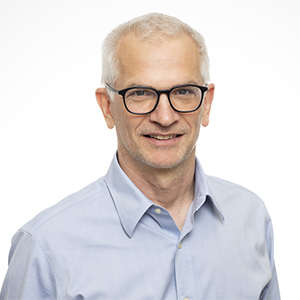
Guillaume Pahud
Co-founder of WOMENVAI, Switzerland
Guillaume Pahud, an engineer by training is a digital transformation expert with major organizations.
He launched the online stores with major luxury brands from Richemont Group and now heads the Customer Portal with SGS, the leader of test, inspections and certification, as well as various blockchain projects.
He is the co-founder of WOMENVAI, which stands for WOmen and Men in ENVironment and Artificial Intelligence.
WOMENVAI’s mandate is aimed at raising the voice for girls and women around the world; building projects for the Planet with Artificial Intelligence and New Technologies; and, dealing with major challenges women face in STEM.
More recently, WOMENVAI was elected as Gender Trendsetter by the ITU/WSIS.
Former Members
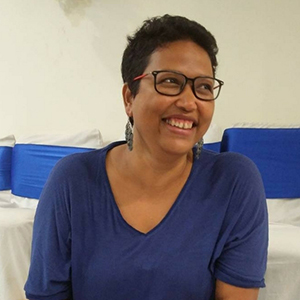
Gayatri Buragohain
Executive Director, Feminist Approach to Technology (FAT), India
Gayatri Buragohain started the not-for-profit organization Feminist Approach to Technology (FAT) in 2007. FAT is the first and only organization in India that works solely to promote marginalised women's participation in all levels of science and technology, and questions the impact of the gender gap within technology on the society.
A feminist approach to technology, as defined by FAT, is an outlook that questions the existing structures of technology and intends to have women become equal partners in developing, using, managing and controlling technology. It critiques the design, use and impact of technology.
FAT believes that equal participation of women in technology and decision-making around it would help ensure that there is better balanced development and growth, promote gender equality and women's rights while attempting to see to it that widely used technologies do not affect women adversely. To create a world where women have equal participation in science and technology, FAT works with adolescent girls and young women from disadvantaged communities to build their personal agency and community leadership intertwining STEM education with feminist leadership building.
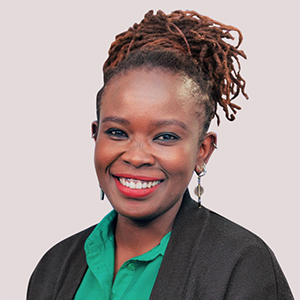
Nanjira Sambuli
Researcher, Policy Analyst and Advocacy Strategist, Kenya
Nanjira Sambuli is a researcher, policy analyst and strategist, interested in and working on understanding the unfolding gendered impacts of ICT adoption on governance, diplomacy, media, entrepreneurship and culture.
She is a Fellow in the Technology and International Affairs Program at the Carnegie Endowment for International Peace, and a Ford Global Fellow. She is also a co-Chair of Transform Health, and board member at the New Humanitarian, Development Gateway, and Digital Impact Alliance.
Nanjira advises the Carnegie Council's AI and Equality Initiative and the A+ Alliance for Inclusive Algorithms. She is also a Diplomacy Moderator at the Geneva Science and Diplomacy Anticipator (GESDA).
Nanjira served as a Commissioner on the Lancet and Financial Times Governing Health Futures 2030 Commission, as a panel member on the United Nations Secretary General's High-Level Panel on Digital Cooperation, and as a deputy on the United Nations Secretary General's High-Level Panel for Women's Economic Empowerment.
History
The Gender Advisory Board was established in 1995 with the main purpose of assisting UN Member States and the United Nations Commission on Science and Technology for Development (CSTD) on the gender dimensions of science, technology, and innovation (STI) policy.
- MORE
-
The Gender Advisory Board was preceded by the Gender Working Group (GWG), established by the CSTD in 1993. At that time, the Commission decided to explore how it might make an intellectual contribution to the 1995 World Conference on Women in Beijing. Collaborating with the secretariat of the Conference, it met in concert with an expert panel in New York, made up primarily of women. It was determined that the Commission would have a better chance to develop innovative thinking around these concerns if they drew on the talent of some of the panel participants, and in this way the GWG of CSTD was formed.
Over the next two years the GWG commissioned studies and met four times to consider the extent of the research base which existed to support the idea of a “gender perspective” in science and technology. It was made up of eight Commission members and eight women expert advisors. They were assisted by twenty consultants who prepared expert papers, and by many NGOs active in gender, science and technology, individuals, academics, and UN Agencies. Three quarters of the GWG were from developing countries.
Based on a report from the GWG, CSTD made a series of recommendations to the United Nations Economic and Social Council (ECOSOC) on gender perspectives in STI. They were adopted by ECOSOC in July 1995 (E/CN.16/1995/3) and contributed to the discussions on STI at the 1995 Beijing Conference.
As a follow-up to the GWG, the Advisory Board on Gender Issues was established by resolution 2/1 of the CSTD (E/1995/31 E/CN.16/1995/14) for an initial period of four years and on the basis of extrabudgetary resources. The Board was to serve as an expert group to facilitate future deliberations of the Commission and the follow-up to its recommendations on gender implications of science and technology for developing countries.
The Board has provided insight into gender issues in STI over the years, funded between 1996-2006 from a grant from the Government of the Netherlands through its Ministry of Foreign Affairs. Its activities included interacting with the CSTD Secretariat, CSTD Working Groups, relevant UN agencies, national governments, NGOs, and NGO networks on gender, science, and technology.
Documents
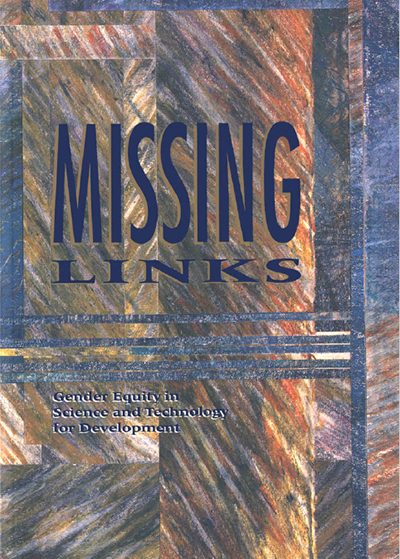
A major objective of the 1995 Beijing Conference was to identify ways in which women could be empowered.
At the time, science and technology tended to benefit men more than women. A prime reason for this was the dominance of men in the decision-making chain: from the science and technology institutions that generate the technology, to the mediating institutions that transfer it, to the societal institutions that use it.
The Gender Working Group tried to identify specific ways in which women could be empowered by gaining access to scientific and technological knowledge.
This book from 1995, largely consists of essays commissioned to distinguished scholars and experts by the Gender Working Group.
Each contributor was asked to explore the issues related to science, technology, and gender in her own area of expertise. In particular, they were asked to give examples where technical change had differentially affected the lives of women and men.
It was agreed that the sooner the missing links were in place, the sooner science and technology would serve all of society, and the stronger the chain would be.



